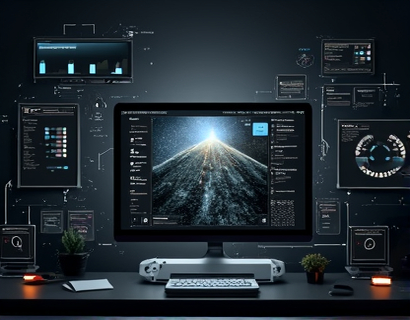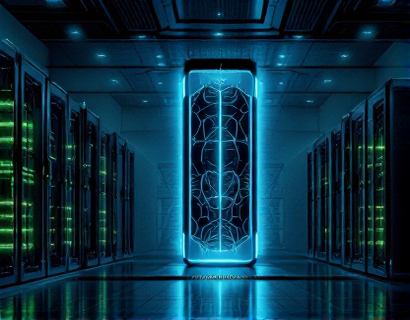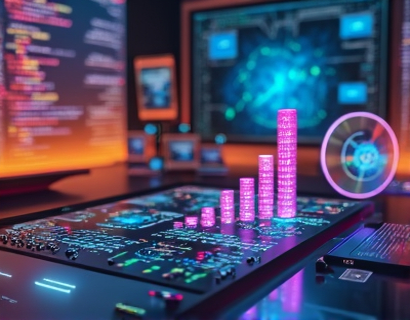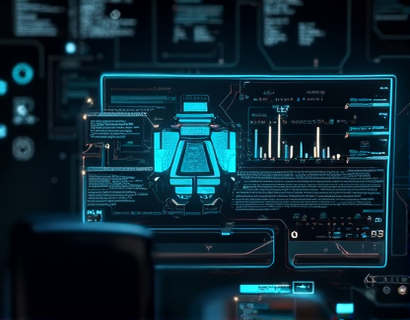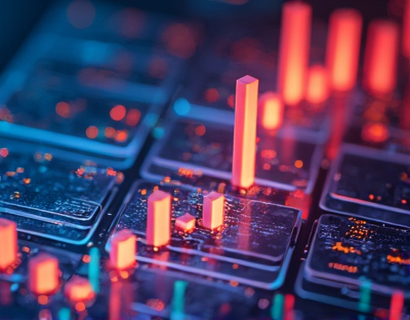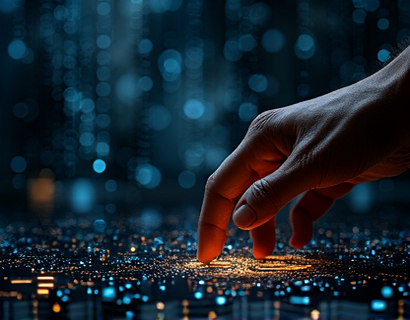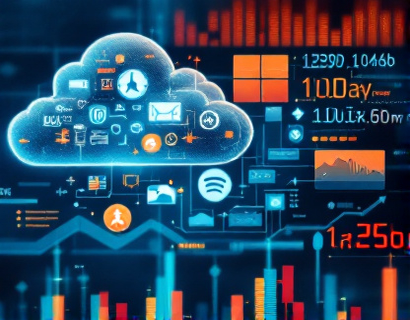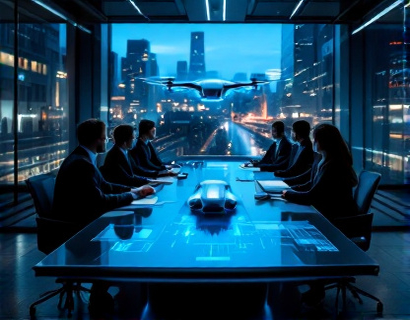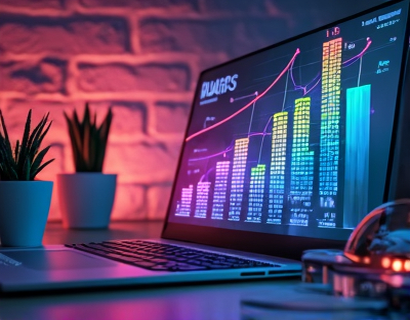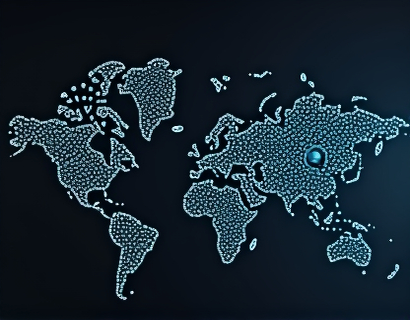Decentralized AI and Crypto: Revolutionizing Ucosystem Applications for Enhanced Digital Experiences
The intersection of decentralized technologies, artificial intelligence, and cryptocurrency is giving rise to a new era of digital applications. This convergence is not just a technological advancement but a paradigm shift in how we interact with digital services. The fusion of these elements is creating what is known as the Ucosystem, a term used to describe the ecosystem built on decentralized applications (dApps) powered by AI and cryptocurrency. This article delves into the transformative impact of this merging, exploring how it enhances user engagement and redefines digital interactions.
The traditional centralized model of digital services has been dominated by a few large corporations, often leading to issues such as data privacy concerns, single points of failure, and limited user control. Decentralized AI and crypto are challenging these norms by distributing control across a network of nodes, ensuring transparency, security, and enhanced user autonomy. At the core of this revolution is the blockchain technology, which provides a tamper-proof ledger for transactions and data storage, ensuring that the Ucosystem operates with integrity and trust.
Artificial intelligence, with its ability to process vast amounts of data and learn from patterns, is a crucial component in the development of intelligent dApps. When combined with blockchain, AI can operate in a decentralized manner, making decisions based on data that is distributed across the network. This not only enhances the efficiency and accuracy of AI-driven services but also ensures that these services are resistant to censorship and manipulation.
Enhanced User Engagement Through Decentralized AI
One of the most significant benefits of integrating AI into decentralized applications is the enhancement of user engagement. Traditional apps often struggle to maintain user interest over time, leading to high churn rates. Decentralized AI-powered dApps, however, can offer personalized and dynamic experiences that evolve based on user interactions and preferences. For instance, a decentralized social media platform can use AI to curate content that is highly relevant to each user, fostering a more engaging and satisfying experience.
Moreover, the decentralized nature of these applications allows for greater community involvement. Users can participate in governance, contributing to decision-making processes through token-based voting systems. This not only increases user loyalty but also ensures that the app develops in a direction that aligns with the community's needs and values. The transparency provided by blockchain technology further builds trust, as users can verify the actions taken by the app's developers.
Redefining Interactions with AI-Driven Decentralized Services
The integration of AI in decentralized services is not limited to enhancing user engagement; it is also redefining the way users interact with digital platforms. AI-driven chatbots and virtual assistants, powered by decentralized networks, can provide 24/7 support with minimal latency. These AI entities can understand and respond to user queries in real-time, offering a seamless and intuitive user experience. The decentralized aspect ensures that these services are not controlled by a single entity, reducing the risk of data breaches and ensuring user privacy.
Another area where AI and decentralization are making a significant impact is in the realm of content creation and curation. AI algorithms can analyze user preferences and generate personalized content recommendations, while decentralized platforms can ensure that creators are fairly compensated for their work through cryptocurrency. This model incentivizes high-quality content creation and distribution, leading to a richer and more diverse digital landscape.
Security and Privacy in the Ucosystem
Security and privacy are paramount in the digital age, and the Ucosystem offers robust solutions to these concerns. Blockchain technology's inherent security features, such as cryptographic hashing and consensus mechanisms, protect data from unauthorized access and tampering. AI, on the other hand, can enhance security by detecting and mitigating threats in real-time, identifying patterns that indicate potential vulnerabilities or attacks.
Privacy is another critical aspect where the Ucosystem excels. Decentralized applications can utilize zero-knowledge proofs and other privacy-preserving techniques to ensure that user data remains confidential. Users have control over their data, deciding who can access it and for what purpose. This level of control is a significant departure from the centralized model, where user data is often exploited for commercial gain without consent.
Use Cases of Decentralized AI and Crypto
The potential applications of decentralized AI and crypto are vast and varied. Here are a few notable use cases that illustrate the transformative power of the Ucosystem:
- Decentralized Finance (DeFi): DeFi platforms leverage AI to offer sophisticated financial services such as lending, borrowing, and trading, all while maintaining transparency and security. AI algorithms can optimize trading strategies and risk management, providing users with better financial outcomes.
- Supply Chain Management: AI-driven decentralized systems can track products from origin to destination, ensuring authenticity and reducing fraud. Blockchain ensures that all transactions are recorded and verifiable, enhancing transparency and trust in the supply chain.
- Healthcare: Decentralized AI applications can analyze medical data from multiple sources to provide personalized treatment recommendations. Patient data is stored securely on the blockchain, ensuring privacy and compliance with regulations such as GDPR.
- Gaming: Decentralized gaming platforms use AI to create dynamic and immersive game environments. Players can earn cryptocurrency for their in-game achievements, creating a new economic model within the gaming industry.
These use cases demonstrate the versatility and potential of the Ucosystem, showing how decentralized AI and crypto can solve real-world problems and create new opportunities.
Challenges and Future Prospects
Despite the numerous advantages, the Ucosystem faces several challenges that need to be addressed for widespread adoption. Scalability remains a significant issue, as blockchain networks often struggle to handle high transaction volumes. However, ongoing developments in layer 2 solutions and blockchain optimizations are addressing these concerns.
Regulatory uncertainty is another challenge, as governments around the world are still grappling with how to regulate decentralized technologies. Clear and supportive regulations can help foster innovation while protecting consumers. Education and awareness are also crucial, as many potential users are still unfamiliar with blockchain and AI concepts.
Looking ahead, the future of the Ucosystem is promising. As technology continues to advance, we can expect more sophisticated and user-friendly decentralized applications. The integration of 5G and IoT will further enhance the capabilities of AI-driven dApps, enabling new use cases and applications. The synergy between decentralized technologies, AI, and cryptocurrency is set to revolutionize the digital landscape, offering a more secure, transparent, and user-centric experience.
In conclusion, the merging of decentralized AI and crypto is not just a technological trend but a fundamental shift in how we build and interact with digital services. The Ucosystem represents a future where users have greater control, enhanced security, and personalized experiences. As innovators and early adopters continue to explore and develop these technologies, the potential for transformative change is immense.






